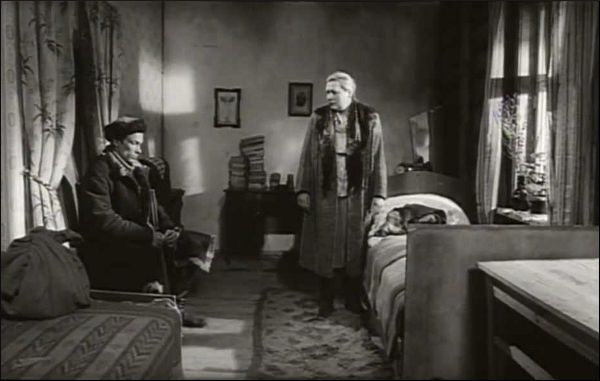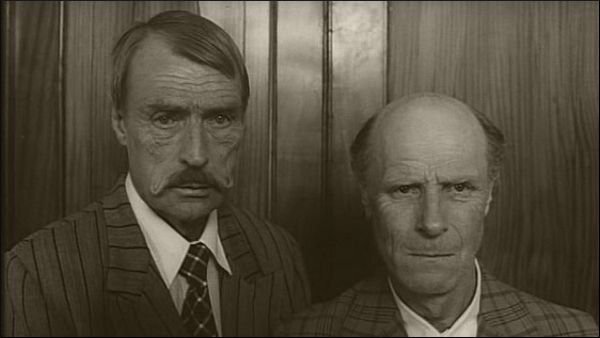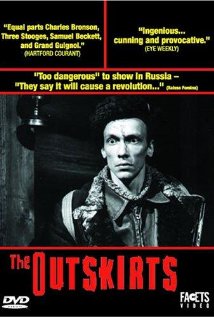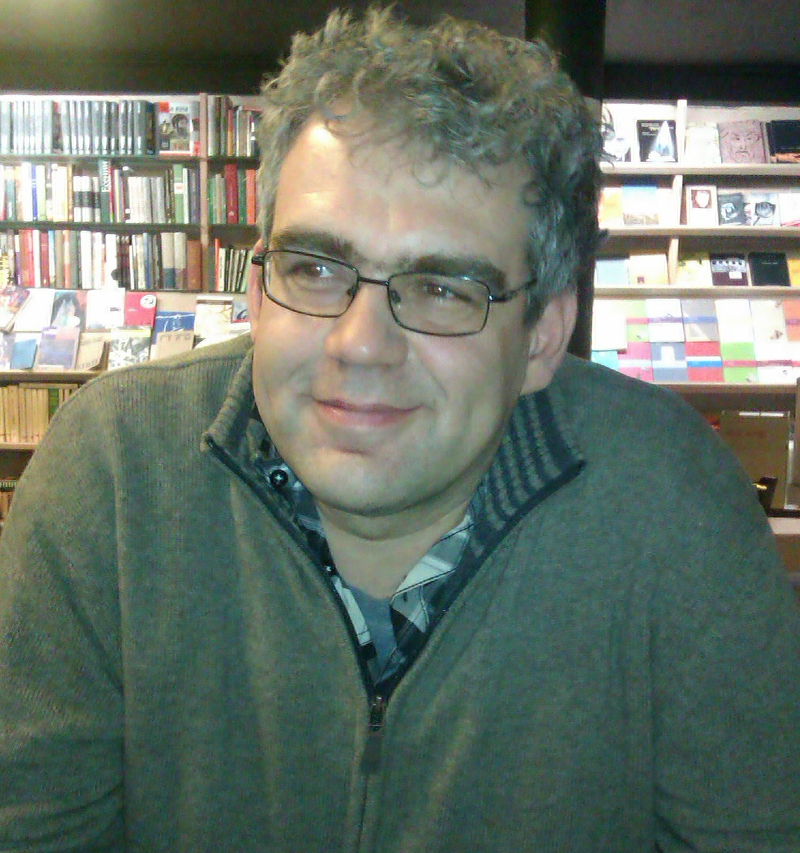Peter Lutsik’s only film as director, Окраина (The Outskirts), was perhaps the least typical film of the 1990s – and, in some ways, also the most scandalous. Some critics and newspapers called it a “call to arms,” while others denounced it as “a real cinematographic terror act.” What was so scandalous about it? It rejected both the post-modern retreat into glamour or imperial fantasy and the temptations of chernuka (similar to 1940s American gangster films or noirs). Instead, it marked a return to the epic Soviet films of the 1930s, like the Vasilyev brothers’ Chapaev, merging them with the ancient byliny (oral epic narrative poems) of early Russian literature and a certain lubok visual style (Russian prints illustrating passages from literature, religion, history, or popular tales). All of this, to hail a kind of great Russian revolt against the new Russian (post-Soviet) oligarchs. Heavily indebted to some of the great portrayals of revolt in early Soviet cinema, it seemed an affront to a decade that wanted to excise everything Soviet-related from memory.
"Окраина (The Outskirts) was perhaps the least typical film of the 1990s – and, in some ways, also the most scandalous."
In the film, a small group of farmers set out to avenge the expropriation of their land, travelling from the Urals to Moscow and meting out sadistic punishments to each apparent usurper along the way. Each time, they find that the main culprit is elsewhere. Finally, their nemesis is discovered in the guise of an oil baron, lodging in one of the Stalinist “wedding-cake-style” vysotky buildings in Moscow (so called because of their tiered design). Of the building, the protagonists say: “Прямо пирамида египетская” (Just like the Egyptian pyramids). But, despite their unease in the court of such a pharaoh, they carry out their bloody revenge against all the scorn their nemesis shows towards them. The canisters of oil arranged inside the oil baron’s office turn out to be a destructive agent threatening an entire city built on deception and swindling, Moscow. The “Egyptian pyramid” is slowly consumed by fire and the city is razed to the ground, while the peasant rebels make their getaway on motorbikes. The farmers idyllically return to their fields and tractors, once again the rightful owners of their land.

There’s a certain folkloric tone and a deliberately anachronistic feel to the whole tale. The dialogue at times recreates motifs from the 1920s and 30s, but the film is set during the 1990s, the post-perestroika period of privatisation and oil and gas oligarchs. There is a definite use of hyperbole and exaggeration. In the early parts of the movie, for example, one character states, after a conversation about a raging blizzard, “Хорошо бы замёрзнуть. Насмерть” (It would be good to freeze [out here]. To death). This hyperbole then veers into the Russian genre of sadistic verse, humorous poems about gruesome incidents: “Ничего, я тебе клещами только два ребра сломал. Будешь промывать марганцовкой – заживёт, как на собаке” (That’s nothing. I only broke two bones of yours with the pincers. You can wash it with potassium permanganate. The wounds will heal – like on a dog).
"For Lutsik, this was his first and only film as director. He set out a completely new path, which was ignored by the film industry of his time."
The stylization of the film and its folkloric tone are also highlighted by rather direct forms of address, as well as paratactic, often very short sentences. Sometimes, the film underlines the contradictions and conflicts between the two worlds the characters live in, as the oil baron states, “Нет, буду я на вашем хуторе скважину бурить, пока нефть или газ не добуду” (No, I’m going to bore holes in your farmstead until I find the oil or gas to extract). This strange folktale was a radical departure for 1990s cinema. The ideas behind the “Бунт” (rebellion) of the old suppressed collective farmers take on a universal aspect. For Lutsik, this was his first and only film as director. He set out a completely new path, which was ignored by the film industry of his time. His movie certainly deserves reviewing, as one can’t help admiring Lutsik’s skill in turning the repressed themes of the 1990s into some spectacularly rich filmmaking.





